He Was Music: Reinhold Mack On Working With Freddie Mercury
Having produced four Queen albums and Freddie Mercury’s ‘Mr. Bad Guy’, Reinhold Mack saw the singer’s working methods up close.
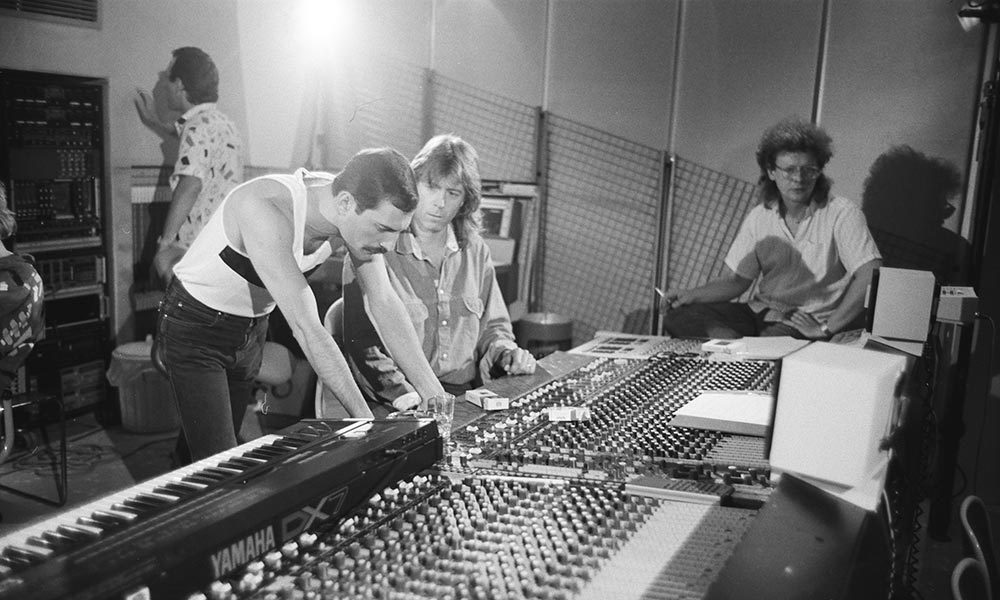
Reinhold Mack, the celebrated German record producer who worked with Queen, Electric Light Orchestra, The Rolling Stones, and Led Zeppelin, vividly remembers the first time he met Queen’s frontman, Freddie Mercury. They bonded over drinks in a Munich beer garden. Mack, as he is known, went on to become the Grammy-nominated producer for Queen’s albums The Game, Flash Gordon, Hot Space, and The Works, and Mercury’s solo album Mr. Bad Guy.
Meeting Queen for the first time
“I remember our first meeting in 1980 very well,” Mack, 70, tells uDiscover Music in an exclusive interview. “I was working with Gary Moore in Los Angeles and was told Queen would be in Musicland Studios, in Munich, and might need me. I bought a plane ticket and went to Munich. When I met Freddie, he said, ‘What are you doing here?’ I told him I had heard there might be a good chance Queen wanted to work with me. He said not really, because the band were coming off a Japanese tour and only had two more weeks to spend outside the UK. ‘Anyway,’ he suddenly said, ‘I hear they have these wonderful beer gardens.’ It was early summertime and we knew it was very nice outside, so we headed to the Chinese Tower for a couple of beers.
“What happened next was really, really funny,” recalls Mack, laughing. “Freddie was wearing ballerina shoes, and shorts that matched his Hawaiian shirt. The beer garden was packed with full tables and about 8,000 to 10,000 people were there, all told. We had to walk right through this huge crowd. We walked next to each other, his arm hooked through mine, with all his other people walking behind us, and it must have looked really weird.
“We became very happy with the beers and we went back to the studio and that is where the ‘Crazy Little Thing Called Love’ single started for the album The Game. Freddie assured me that he couldn’t play guitar, but he would play the melody for me anyway. I just ended up recording the whole impromptu thing he did.
“A couple of hours later, drummer Roger Taylor and Deacy [John Deacon] arrived – and I asked them if they wanted to listen to the song. They weren’t sure and thought the studio I had set up was a bit basic. I said, ‘Why not give it a listen – it’s three minutes out of your life and it won’t hurt. If you hate it,’ I told them, ‘I can just wipe the tape and it’s gone.’ They checked it out and said, ‘Oh, this is really good – we should finish this.’ This is how working with them started and a few hours later we had the brilliant ‘Crazy Little Thing Called Love’ finished – and it was the song Freddie wrote in his Munich hotel.”
Working on Mr. Bad Guy
Mack, whose parents sold musical instruments, learned to play piano and clarinet as a child and then moved on to the electric guitar. He formed a band as a teenager. “We were terrible. We made the papers because we were called ‘the loudest band on earth’ – lots of people claim that, but we were pretty loud. Our loudness covered up the awfulness,” says Mack. He eventually began specializing as a producer and engineer. After working on some iconic Queen albums, he was hired by Mercury to be the engineer and co-producer on the singer’s debut solo album, Mr. Bad Guy, in 1985. He also oversaw the drums and synthesizer programming. What does he remember of their working relationship?
“Doing the album was a completely unstructured process,” says Mack. “Freddie lived here at the time. He had an apartment and I used to come about one or two to pick him up. We drove to the studio and decided what to do. We would play Scrabble for a while, sometimes we would go and do some shopping. Maybe we’d do a little recording. He usually came up with really good ideas in a matter of 15 or 30 minutes. He was always good at finding something, even if it was not the complete song. Sometimes he would devise the main hook really quickly. Then he developed it and I edited the stuff together. If we had the backbone of a song, we were happy. We would usually work hard until seven o’clock and then go to dinner.”
The Mr. Bad Guy album was a labor of love, taking nearly two years to complete. Mercury wrote all 11 songs on it, sang the vocals, played piano and synthesizer, arranged the orchestration, and worked painstakingly with Mack to obtain the sound he wanted.
Finishing Mr. Bad Guy
Mack used a variety of local Munich session musicians to play alongside Mercury, including drummer Curt Cress, guitarist Paul Vincent Gunia, and bass player Stefan Wissnet. They were also joined by Canadian-born rhythm guitarist and synthesizer player Fred Mandel.
“I picked the musicians for whatever we needed,” says Mack. “For a time, Fred Mandel came over. He was a very good player. The others were local studio guys that I knew who were reliable and who could execute and translate what needed to be done. There were no notes or anything written down, so you have to rely on people’s imagination. ‘Can you play that in a funky style, or whatever needs to be done?’ Freddie would ask. Freddie was really fond of the musicians. The studio guys don’t really talk back. You give them an idea and they make the best of it. Or you tell them that this is good but I’d rather like it this way or leave it out and just do it. He really enjoyed that and the guys were really good, so what’s not to like?”
Mack says he is still proud of Mr. Bad Guy, adding “I really like ‘Let’s Turn It On’ – but then I like all of the tracks on the album. The songs are not trying to be anything else but Freddie. A lot of people were expecting Freddie to be catering to the audience. He didn’t want that. He just wanted the songs as they are. I didn’t try to get involved in the mixing, because he may not have wanted a lot of new ideas at that stage. It was already great and I would not want to have gone in and made changes for the sake of it, like someone painting a nose on a Rembrandt portrait at the very end.”
Friendship with Freddie Mercury
Beyond their working relationship, Mack and Mercury struck up a close friendship – and Mercury loved spending time with the producer and his family. “We became good friends, and at least now I know where my money went to,” jokes Mack. “Freddie and my wife Ingrid used to go shopping. It was unbelievable. You know all the tracksuits he was wearing in pictures, like the yellow one that people remember? That all came from those shopping trips with my wife.”
The pair realized they had a close bond during the recording of the 1982 Queen album, Hot Space, when Mercury and Deacon became godfathers to Mack’s third son, John Frederick Mack. “That came about during the Hot Space sessions, when Ingrid said, ‘It’s probably easier to conceive and give birth to a child than you guys getting that album finished.’ The album took four weeks longer than Freddie being born!”
Mercury became an integral part of the Mack family life. “Freddie came to all the kids’ birthday parties, but one time was particularly memorable,” recalls Mack. “You remember the outrageous red outfit he wore for the ‘It’s A Hard Life’ video? Well, he came to a birthday party for my son Julian wearing that. I thought, He’ll never do that. But with Freddie it was: ‘I’ll show you. I can do anything.’”
The kindness of Freddie Mercury
The Queen singer was also fond of simple pleasures. “He played table tennis a lot with us,” says Mack. “He was a really, really good table tennis player. I could never beat him, and Julian, who is a strong player, said, ‘I can’t beat that guy.’ Freddie was also really good at tennis. He was here for nearly two years. We didn’t work every day and if it was nice we would have the excuse not to go in the studio and just spend time having fun in the swimming pool. We had dinners all the time and we became very friendly and he opened up. He was very concerned about little Freddie and if his godson was eating or going to bed early enough and getting enough sleep – more concerned than Fred’s mother!”
Mercury was a considerate, generous friend. “He was very thoughtful. He would remember things,” said Mack. “He would buy outrageous presents for my kids, like giant teddy bears. One time we were talking about painters. I told him I had this book from Salvador Dalí which was full of all these amazing things. A couple of days later, he came into the studio and threw a package on to the mixing counsel and said, ‘Open it, open it.’ There was a signed Dalí copy of one of his paintings. That is really nice, I said. ‘No, no… this is for you. I thought you liked Dalí,’ Freddie said. “That was lovely, if a little over-the-top, but he was just a generous guy.”
Working with The Rolling Stones
Mack has had an amazing career in music and worked with some of the biggest bands of the modern era. “I worked on two albums with The Rolling Stones, which were done in probably ten segments,” he says. “Out of those sessions came Black And Blue and It’s Only Rock And Roll. Those sessions were pretty unorganized. The Stones would just play, and you would record everything all the time. It didn’t matter how many rolls of tape you needed, you just kept rolling while they were playing. At the time it was complicated, because the drug consumption was enormous and that would lead to recording sessions starting about two o’clock – two o’clock at night, they meant! That was fairly hard.”
The producer remembers one incident that casts a different light on their anarchic ways. “One time they were rehearsing a song and the telephone in the mixing booth rang,” recalls Mack. “A woman said to me, ‘Can I talk to Michael, please?’ And I said, ‘Do you mean Mick? Because he is in the middle of a session right now, so I can take a note.’ She said adamantly, ‘No, no. Tell him this is his mother… and I need to talk to Michael right now.’ So I went to the recording booth window and waved the telephone at Mick Jagger, and he was mouthing back, ‘No, no, no.’ Then I mouthed, ‘It’s your mother,’ and I heard him say, ‘Oh f__k. Alright everyone, stop playing.’ He came straight to the phone. With a mother, that works at any age!”
Working with Electric Light Orchestra and Led Zeppelin
As well as his work for Queen, Mack also produced some of the best-selling albums of the 20th century with Electric Light Orchestra. “That was entirely different from my time with Queen,” says Mack. “With ELO founder Jeff Lynne, it was just work, work, work, work. All the time. From 11am to one in the morning. He had a very British personality, that thing where the person you think you know when you come in to work doesn’t even acknowledge you are here and was miserable. By midnight, after many pints of beer, he will be sitting on your lap and telling you how brilliant you are. The next day, same thing. Grumpy old man comes in and, after a day of work and pints, Jeff is on your lap again.”
Another memorable collaboration from that era was working with Led Zeppelin, as the assistant engineer on their 1975 album, Presence. “The engineer was Keith Harwood, who later died in a car accident. I never wanted a credit on that album, because it was too wacky,” says Mack. “Robert Plant had his leg in a cast and was in a wheelchair during the recording sessions in Munich. He couldn’t move too well. He was put in the vocal booth. It was nighttime and some of the musicians were taking a lot of cocaine. Robert couldn’t go to the bathroom easily because it was back through the studio and lobby at Musicland, and it took too long. He realized the fire exit at the end of the studio was close to his singing booth. So he would wheel himself over there, open the door, and pee down the stairs into the next basement.
“As fate would have it, one time he leaned too far and the wheelchair toppled over. Since it was a fire door, the door closed automatically and he was left lying on the floor outside the door. After a while, people started saying, ‘Where’s Robert?’ and everyone went in different directions trying to find him. Eventually, it dawned on me, ‘Man, he’s probably out there.’ He was still lying there. I drove him to the hospital to check that he hadn’t broken his leg again.”
Freddie was a genius
Among all the great musicians Mack has worked with, how highly does he rate Mercury? “Freddie was music. He was a genius,” he says. “You think of an idea and he would do something even better. He could always top what he had done himself in various ways. You would think, Jesus, how could you even come up with that stuff? He was a brilliant piano player and he actually plays really good guitar, too, even though he claimed he couldn’t.
“The way the guy wrote was to take a little notepad from, say, the Hilton Hotel and he might just write something like ‘A, F, C,’ and then the next line would be the following chord and there would be ten of those pages and he would say, ‘Ah, there’s the song. It looks good and I can already hear it. I would tell him that I could sort of understand the chord structure, but wanted to hear the melody. Then he would come up with something remarkable on top of it.”
Remembering Freddie
Mack says that it is painful to think of what happened to Mercury, as he fought a losing battle against AIDS. “Ingrid and the kids used to go over and stay with Freddie in London,” he says. “The last time I saw him I had been in Scotland and had a stop-over in London. He didn’t look that good – his illness wasn’t in the open, but it was the elephant in the room.
“After that we talked on the phone, but he did not want me or my family coming to see him again. I think, which I admired, he knew he was going and he wanted to be remembered as he had been: full of life and playing table tennis or complaining about the food, or telling us about the things he loved and hated. His personality was so great. He was a brilliant man. It was such a loss.”
The career-spanning Freddie Mercury box set, Never Boring, is out now. Order it here.





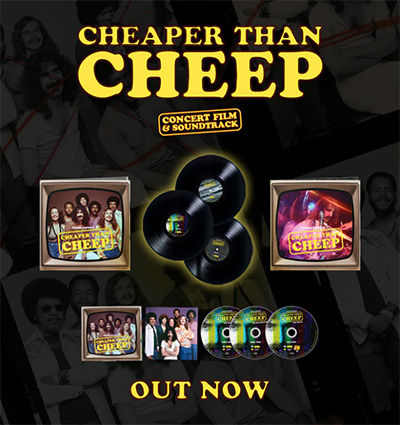
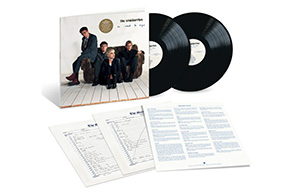

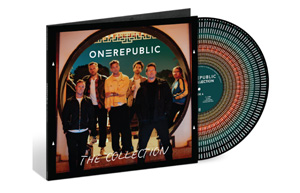



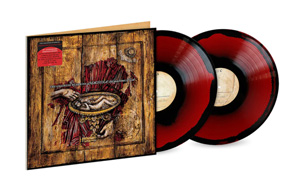
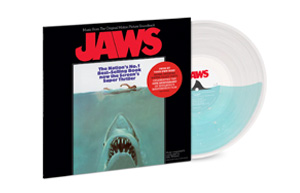
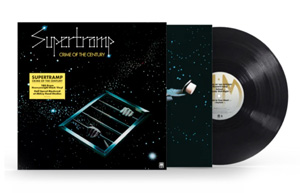
Steven B
December 10, 2019 at 1:54 pm
Interesting that Mack talks about the mixing of the Mr Bad Guy album. I’ve heard the recent remixes but I still think the originals are the best.
Ana
December 10, 2019 at 7:02 pm
Wow cuantas buenas anécdotas y que genial lo que cuenta de Freddie.. todos sabemos que Freddie era un genio, pero que lo diga un Productor brillante como Mack, tiene más valor!!!